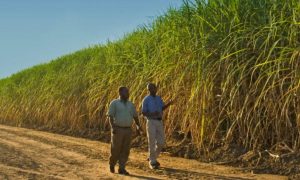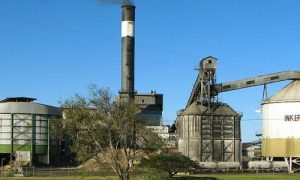Uganda expected to have total standing biomass stock of 284.1 million tons per year

Uganda’s biomass resources are extensive, with an annual stock of 284.1 million tons. However, the sustainable supply falls short of meeting the country’s demand. Experts stress the importance of improving bioenergy systems, utilizing agricultural and livestock waste, such as dung, to meet energy needs. Initiatives like those from Sendea Academy focus on training technicians for bioenergy solutions.
Uganda is estimated to have a total standing biomass stock of 284.1 million tons per year, with a sustainable biomass supply potential of 45 million tons annually, according to figures from the energy sector. However, the country’s annual demand for biomass stands at 44 million tons, and the 26 million tons of sustainable wood biomass available only meets 59% of this demand.
Experts have emphasized the need to scale up the capacity of modern biomass systems to maximize the utilization of existing biomass resources. This would enable the country to meet the energy needs of both institutional and residential users, ensuring a sustainable bioenergy supply.
Mzee Frank Kyaligonza, the owner of Kyaligonza farm in Kamuli district, highlighted the importance of utilizing local biomass for bioenergy. “On my farm, we have goats and cows that provide us with more dung than we are currently using for biogas and manure. It’s crucial for every household to harness such biomass for affordable bio-energy production,” he said.
In response to the need for more efficient bioenergy systems, Sendea Academy, in collaboration with Stiftung Solarengie, Biogas Solutions Uganda, and various vocational training institutes, is working on a capacity-building initiative to promote the adoption of modern bioenergy systems.
Engineer Loy Kyozaire, CEO of Sendea Academy, stressed the importance of improving biomass utilization. “The demand for modern and efficient bio-energy systems that can fully harness the vast biomass stock from livestock dung and other agricultural products is immense,” Kyozaire said. “Our training programs target young technicians, ensuring that there is sufficient capacity to build energy systems that can tap into the millions of tons of biomass available, especially within Uganda’s farming communities.”
Kyozaire’s comments were made during a field inspection of community farms in Kamuli district, where a group of technicians, trained in the design, construction, and installation of domestic biogas systems, were gaining practical exposure. One of the trainees, Simon Peter Mubiru, shared his insights on the skills he acquired. “We’ve been trained in the construction of modern biogas digesters, the installation of prefabricated digesters, and the setup of pipes and fittings, among other key components,” Mubiru explained.
With efforts like these, Uganda is working towards building a sustainable bioenergy sector that can effectively tap into its abundant biomass resources, addressing both energy needs and environmental goals.
To read more about Ethanol Industry & Bio Energy News, continue reading Agriinsite.com
Source : Bio Energy Times

















